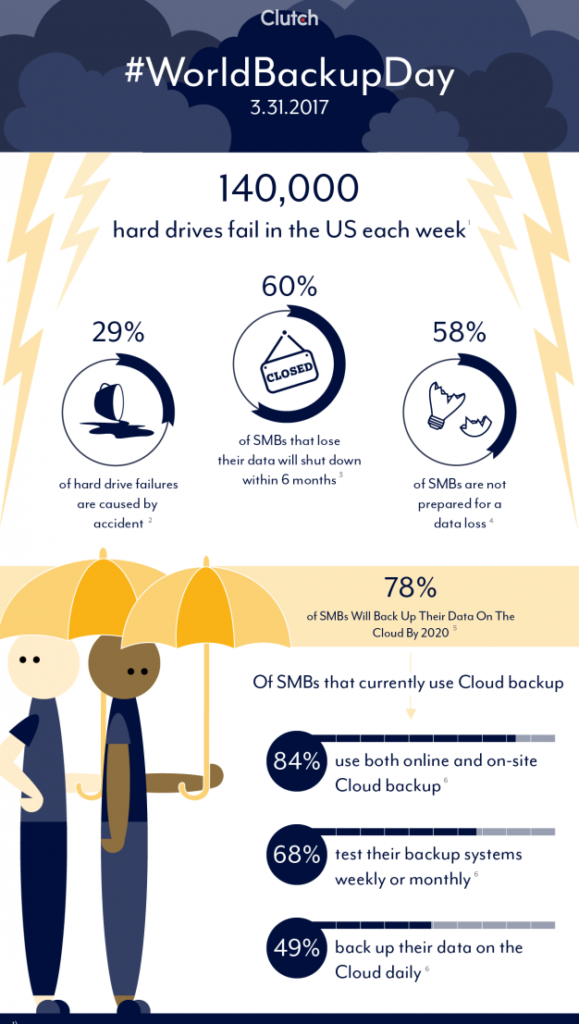Small Businesses Hit by Data Loss Don’t Last Long
Data loss hits small businesses particularly hard for a number of reasons. The lack of technological expertise on staff may mean that backups are out-of-date or non-existent. Having fewer employees means a larger percentage of employees must dedicate themselves to recovery during a disaster rather than doing profitable work.
Perhaps the biggest reason is that small businesses work with smaller margins. A data loss event can take weeks or more to recover from. During this time a business may lose large amounts of money due to giving refunds, lost business, and lack of productivity.
Almost 60 percent of small businesses hit by data loss go under within 6 months. That’s a big reason to protect yourself.
Small Businesses That Prepare for Data Loss Weather the Storm
 The good news is that protecting yourself from data loss can be as simple as backing up your essential information in the cloud and on-site. Storing information in two places ensures that even if a catastrophic event occurs in one of those places, you’ll have a second copy to work from.
The good news is that protecting yourself from data loss can be as simple as backing up your essential information in the cloud and on-site. Storing information in two places ensures that even if a catastrophic event occurs in one of those places, you’ll have a second copy to work from.
In addition to backing up data, small businesses should also take some steps toward preventing malware. Using an anti-virus program provides a good first layer of protection. Not downloading attachments or following links from unknown parties is an essential second layer of protection.
Many distributors of malicious software (such as ransomware) use social engineering to trick staff into downloading malware onto company machines. A popular trick is to send an email with a fake receipt or link to track a package–clicking on these malicious links could download devastating software onto your computer.
Steps to Avoid Data Loss
Small business owners have a large number of things to worry about, and that can lead to procrastination in areas that don’t have an immediate impact. Instead of avoiding the sometimes technically difficult subject, try to follow these simple steps to protect your business.
- Back up files in at least two locations (preferably one of those would be in the cloud).
- Employ anti-virus software and use common sense to avoid malware.
- Replace hard drives when they get noisy–that means they’re about to fail.
- Consult a trusted professional to recover data from a damaged or corrupted hard drive.
To put it another way, you don’t need to understand the finer points of malware, hard drive failure, or any other technical subjects to take precautions against data loss. Just use common sense and universal advice and your business will be on much firmer footing.
